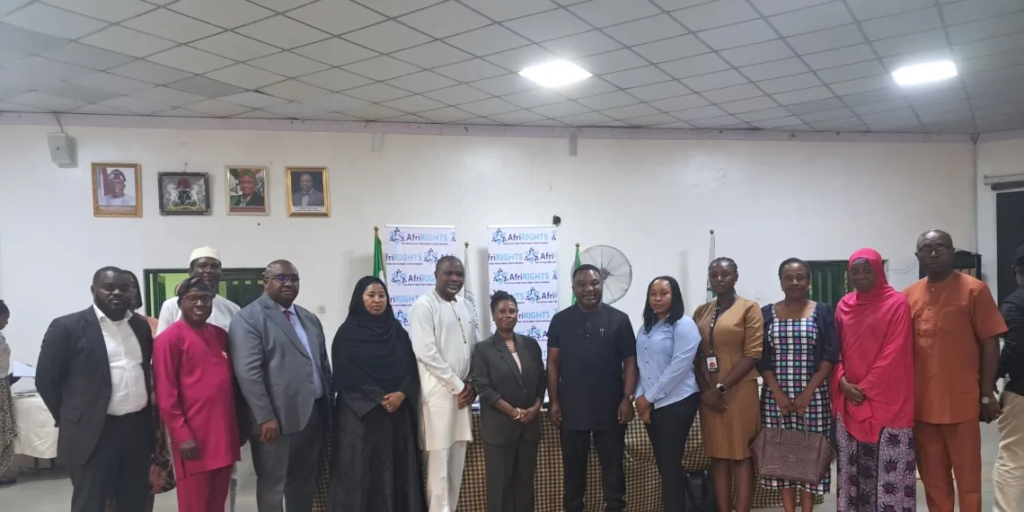
The National Human Rights Commission (NHRC) has expressed deep concern over the rising number of human rights violations in Nigeria, as it announced that more than 1.4 million complaints were filed in the first half of 2025. This shocking figure was disclosed during the commission’s mid-year presentation held in Abuja on Monday.
Growing Concern
Hilary Ogbonna, the Senior Human Rights Adviser at the NHRC, highlighted the significance of this increase, warning that the figure of 1.4 million complaints by June is an alarming trend. “This number is something that we should have etched in our memories as we leave here today. 1.4 million by 30 June in any given year is a huge number,” Ogbonna said. He further expressed concerns about the potential for the number to rise significantly by the end of the year.
Escalating Human Rights Challenges
For comparison, the NHRC recorded 2 million complaints in the entirety of 2024, indicating an ongoing escalation in cases of human rights violations. In the first half of 2025 alone, the commission has managed to resolve only 20,137 cases out of 1.4 million complaints, underscoring the difficulty of addressing such widespread violations.
Mr. Ogbonna emphasized that the NHRC’s ability to resolve cases is hindered by chronic underfunding. “Resolving one human rights complaint alone could cost you more than you can imagine… it takes you like N10,000 to solve one human rights complaint,” he stated. He added that adequate funding would significantly enhance the NHRC’s capacity to protect human rights in the country.
Underfunding Hinders Human Rights Protection
During a budget defence session in January, NHRC Executive Secretary, Tony Ojukwu, called for an increase in the commission’s budget from N8 billion to N19.55 billion, citing the financial constraints that limit the NHRC’s effectiveness. This call for a budgetary boost aims to strengthen the commission’s operations and ensure that more complaints are addressed.
The Grim Picture of Insecurity
The NHRC’s mid-year report painted a grim picture of the state of human rights in Nigeria. The commission expressed alarm over the escalating violence and insecurity, particularly in Benue, Kaduna, and Niger States, which saw a rise in violent attacks, including the killings of law enforcement officers and military personnel. The report noted that more than 50 people were abducted in Kogi and Benue States during the month of June, marking severe infringements on the freedom of movement, personal dignity, and economic participation of Nigerians.
Mr. Ojukwu, a Senior Advocate of Nigeria, reflected on the situation by asking, “Are we doing enough? The events of June 2025 demand not just reflection, but an honest and urgent response.”
Record High Complaints in June
The NHRC’s report for June 2025 showed a 20% increase in complaints compared to May, with 327,154 cases recorded. Among the June complaints, there were 606 killings and 79 kidnappings. The highest incidences of killings occurred in Benue, Zamfara, Plateau, and Kebbi States, contributing to a growing trend of violence and insecurity.
Geopolitical Insights: North-Central Region Leading in Complaints
The North-central geopolitical zone recorded the highest number of complaints, with 137,179 cases, followed by the North-west with 67,220 complaints. In the first half of the year, North-central maintained its position as the zone with the most complaints, totaling 479,595 cases.
Gender and Children’s Rights Violations
The commission also reported a disturbing rise in gender-based and children’s rights violations. In June, 1,890 women complained about being denied access to their children, while 1,348 women were reported abandoned. Additionally, 3,972 women filed complaints of domestic violence, and there were 1,471 cases of sexual violence.
On children’s rights, the NHRC recorded 1,164 cases of child abandonment, 602 cases of children being forced into marriage, and 544 cases of forced child labour.
Conclusion
The NHRC’s alarming mid-year report underscores the urgent need for both government intervention and financial support to tackle the growing human rights violations across Nigeria. As the country grapples with increasing insecurity and human rights abuses, the NHRC has called for a comprehensive response to address the systemic failures that perpetuate these violations.
